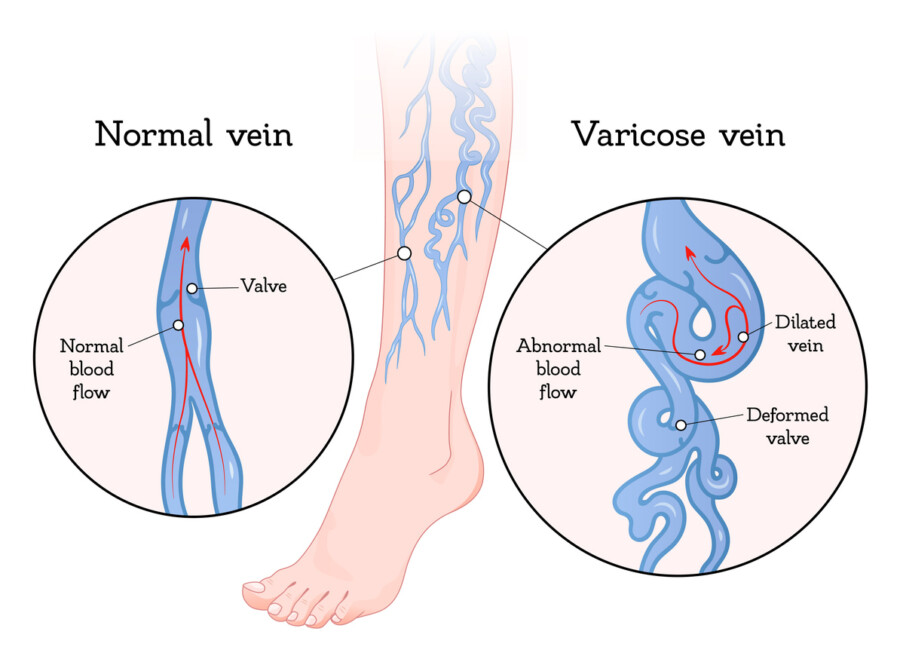Will Your Varicose Veins Come Back After Treatment?

Clinical treatments can eliminate varicose veins, and vein experts can help to ensure varicose veins don’t return in full force after treatment is over.
Clinical treatments are very effective in shrinking your troublesome varicose veins. But, even though a varicose vein has a low chance of returning after treatment, a new varicose vein might emerge somewhere else. In this article, we will discuss how a specific varicose vein can return after treatment, how new varicose veins can emerge in other locations, and how to minimize the risk of varicose veins overall.
Can varicose veins come back?
Your veins contain thousands of tiny valves that open and close to carry deoxygenated blood back to your heart. If these valves stop working properly, they can become incompetent — causing blood to pool in your vein. Varicose veins are especially common in the thighs, calves and feet, since these areas require your valves to fight gravity and bring blood back up to your heart.
There are plenty of reasons why you might seek treatment for varicose veins. Many people with varicose veins are self-conscious of their appearance. Others experience an itchy or aching sensation. Fortunately, vein specialists offer a variety of effective treatments to effectively shrink varicose veins. Varicose vein treatments usually involve minor surgery to seal up a varicose vein, or to block it off from incoming blood flow, using processes like sclerotherapy, micro-phlebectomy, or endovenous laser ablation (EVLA).
Once your vein has been treated, it is unlikely that the same varicose vein will reemerge in the same location. If a varicose vein returns in the same spot after treatment, it reopens in a process known as recanalization. The risk of recanalization is rare — under five percent — but never zero. If you are concerned about recanalization, discuss with your vein specialist which treatment has the lowest recanalization risk.
Can I develop varicose veins in a different spot?
Varicose vein treatments are high-tech and effective, and recanalization is unlikely to occur. However, that doesn’t mean varicose veins are gone for good. If you continue to experience risk factors, it’s much more likely that you may develop new varicose veins in a different location.
Clinical treatments for varicose veins address specific problem spots, not your venous valve system as a whole. If you experience risk factors for varicose veins — like genetic predisposition, obesity, pregnancy, or less common medical factors — you might develop varicose veins in a new spot after existing veins have been treated. To ensure you can treat varicose veins as soon as they arise, schedule regular appointments with a vein specialist to check up on your venous health. Minimizing risk factors, such as losing excess weight, are the key to reducing your chances of developing new varicose veins.
Choosing the right vein specialist
Even though varicose vein treatments are highly effective for a specific vein, no treatment can ensure you will not experience regrowth of new varicose veins in the future. However, you can take steps to improving your vein health by visiting a trustworthy vein specialist.
At Center for Vein Restoration, our venous experts offer effective treatments to reduce the chance of recanalization, and regular checkups to ensure your venous health is in top shape. To prevent new varicose veins, our doctors can advise you on how to minimize risk factors, like obesity, and how to recover healthily after treatment.
Varicose veins don’t have to keep you down — to schedule an appointment, contact us at CVR today.